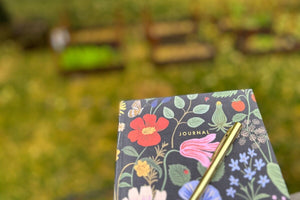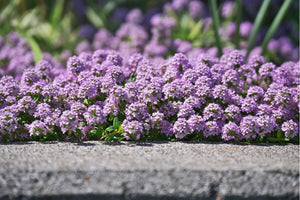Tips for Urban Gardening Success: Overcoming Challenges to Reap the Benefits
Types of gardensIf you live in the city, you might feel like gardening is out of reach. Don’t be discouraged! Urban gardening is on the rise and has many benefits for individuals and the community. With these ideas, you can still grow flowers, herbs, and vegetables wherever you live.

At Sow Right Seeds, we think everyone deserves to enjoy fresh, home-grown vegetables. Even if you live in an urban environment, gardening is still an option. A few flowers on a balcony or an indoor herb garden all count as a garden. While there are some challenges to urban gardens, there are techniques that can overcome the challenges so you can reap the benefits.
Benefits of Urban Gardening
Urban agriculture is a great way to bring nature to areas that often feel barren and lifeless, such as rooftops, empty lots, or even apartment balconies. The benefits of urban gardens are worth the effort.

Building community –
- Gardening can bring volunteers together to beautify the neighborhood. Community gardens are not exclusively urban, but they can thrive in the city. These gardens might include a therapeutic garden for the elderly and those who need some gentle exercise and outdoor time. An urban garden can be set up in a schoolyard or a local park and worked by neighborhood volunteers. People love to stop and smell the roses, even if they don’t take part in the work of gardening. Gardens create opportunities for cross-generational bonds and allow neighbors to get to know one another.
Improving property –
- Gardens are an excellent way to clean up the neighborhood. A beautiful garden lot is beautiful, whether it’s a community garden or created on your lawn. It “provides a refuge from urban decay” that is too often prevalent in the city. The increased neighborly activity can help bring down crime rates and improve property values, too.
Providing access to food –
- Urban areas are notorious “food deserts” – pockets of town where it’s hard to find quality groceries, often in the poorer parts of town. People in food deserts can rely on fast food or convenience stores for their daily shopping. Adding an urban garden to your neighborhood or even to your own front stoop can provide fresh, wholesome fruits and vegetables.

Health benefits –
- Living in the city may mean more access to restaurants, education, businesses, and other people, but it also comes with a disconnection from nature. Plants do wonders to help offset some of the air and water pollution and heat buildup in the city. Doing the work of gardening can reduce stress and increase physical activity, too.

Challenges of Urban Gardening
Of course, urban gardening comes with plenty of challenges, too. However, the benefits are worth finding the ways to overcome the challenges.
Space –
- Finding a place to garden might be hard if you’re in an urban setting and you don’t have a friendly community garden already started. If you’re ambitious, you could start your own! Another option is to look for plot gardens that may be available to rent in your area. These will have allocated land or raised bed plots that are leased out to urban gardeners. For those living in apartments or homes with limited outdoor space, indoor herb gardening is an excellent way to bring greenery inside. If you're navigating urban gardening challenges and solutions, finding ways to maximize space and light can make all the difference. Take advantage of every space you can find. A container garden on a rooftop or patio can meet your gardening needs.
Pollution –
- You may have to make some important decisions if your soil is contaminated with heavy metals like lead or arsenic. It’s important to get your soil tested before growing anything edible, especially if you live in an urban setting. Much of the danger from contaminated soil comes from breathing or accidentally ingesting the soil by putting your fingers in your mouth. If you do find out your soil is contaminated, there are precautions you can take, like wearing a bandana and gloves. The good news is that certain plants can help to remediate toxic soil, particularly sunflowers! You may decide to grow in containers or raised beds, or you may go forward with working the soil with precautions in place.

Heat –
- All of that concrete and asphalt can get pretty hot! Plants may help bring the average temperature of the city down, but it takes a lot of them to do that. Urban plants may get scalded leaves or wilt in the summer heat. Your urban garden may need extra water and shade to keep the plants healthy and thriving. It's also important to choose varieties that grow better in warm weather. For some tips on gardening in the heat, read Gardening in Hot Weather: Tips to Help Your Plants Thrive
Don’t give up on gardening if you live in the city! Containers, vertical space, raised beds, and even indoor growing can help you achieve the benefits of a home garden. Bringing a bit of green to a metropolitan landscape can completely change the neighborhood or just your front stoop. Urban gardening can be uniquely rewarding and bring a bit of much-needed fresh air into your life.
Written by Teresa Chandler









Leave a comment